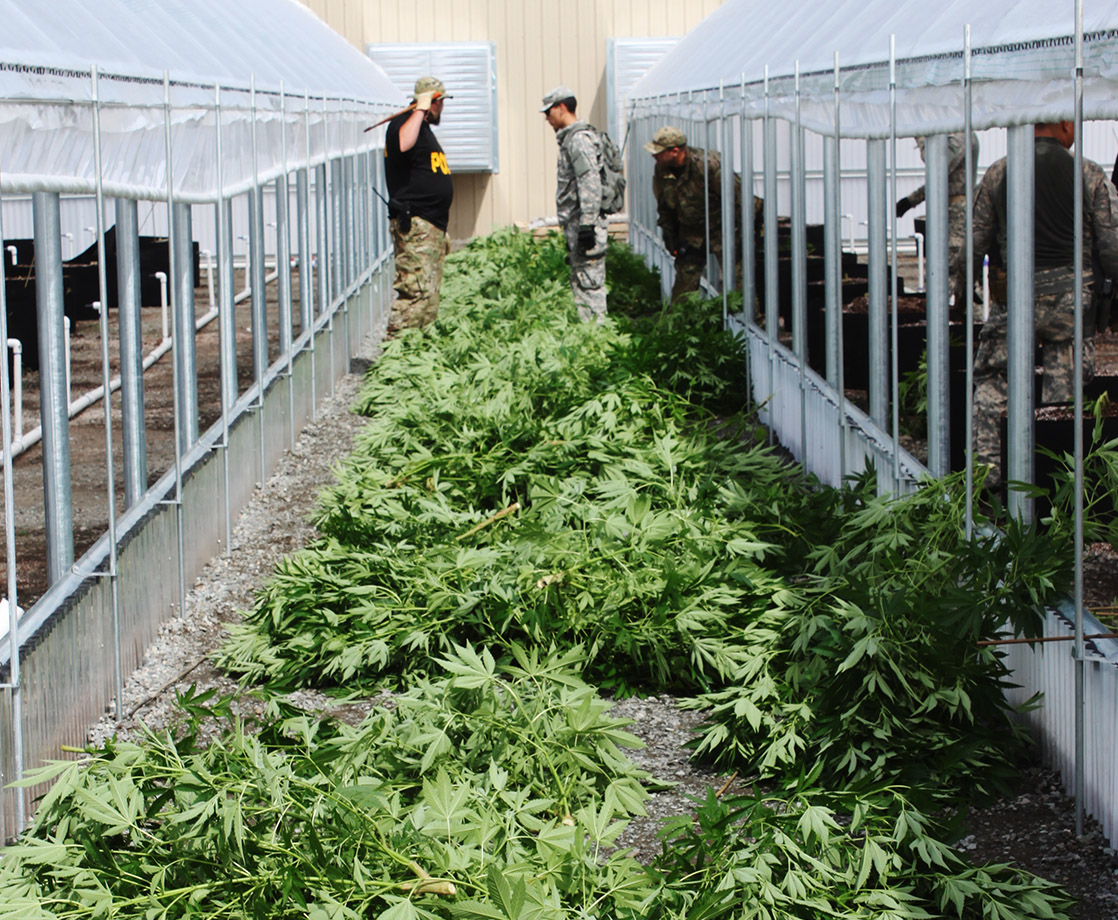Oregon lawmakers say that cannabis overproduction is likely to be a priority issue during next year's legislative session, in response to a recent federal report accusing the state of being unable to control its oversupply problem. Cannabis farmers have been legally growing weed in Oregon since 1998, when medical marijuana was legalized, and seriously ramped up their production after recreational weed was legalized in 2014. The federal report, authored by the Oregon-Idaho High Intensity Drug Trafficking Area (HIDTA), found that Beaver State cultivators are now growing around 2 million pounds of weed a year — but Oregonians are consuming less than 375,000 pounds per year.
Faced with a shortage of demand, many cultivators in the state have been selling off their product on the black market, and analysts have estimated that around a third of the state's legally-grown weed is being sold illegally. In February, Oregon U.S. Attorney Billy Williams warned that if the state was unable to control its oversupply problem, the federal government was preparing to step in and fix it for them. In May, state regulators put their cannabis licensing program on hold, and passed new regulations to try to increase their oversight of grow-operations across the state.
Following the HIDTA report, Williams released a new statement calling on state legislators to take further steps to reign in their “out of control” cannabis industry. “The industry’s considerable and negative impacts on land use, water, and underage consumption must be addressed immediately. State officials should respond quickly and in a comprehensive manner to address the many concerns raised by this assessment. To date, we’ve seen insufficient progress from our state officials. A weakly-regulated industry will continue to detract from the livability and health of communities throughout the state.”
“What is often lost in this discussion is the link between marijuana and serious, interstate criminal activity,” Williams added. “Overproduction is rampant and the illegal transport of product out of state — a violation of both state and federal law — continues unchecked. My ask continues to be for transparency, responsible regulation, adequate funding, and a willingness to work together. It’s time for the state to wake up, slow down, and address these issues in a responsible and thoughtful manner.”
State Senate Democratic Leader Ginny Burdick has suggested several solutions to the problem, including capping the total number of available cannabis licenses, as well as providing additional support to law enforcement to help ensure that canna-businesses are following the state's regulations. Burdick also proposed a much more progressive solution to the problem — removing cannabis from the federal Controlled Substances Act. This would allow legal transportation of pot from one canna-legal state to another, as well as allowing canna-businesses access to banking, putting an end to the dangers of operating on a cash-only basis.
The Oregon Liquor Control Commission (OLCC) has cast same doubts on the veracity of the HIDTA report, noting that it says there are around 1,000 more recreational cannabis producer licenses in the state than there actually are. “We need to figure out if there are other inaccuracies in the report,” OLCC spokesperson Mark Pettinger said to the East Oregonian. Still, Pettinger noted that the OLCC is stepping up to correct the problem, and will have “a larger presence and more systemic enforcement” of regulations during the fall harvest season. The state has also mandated that all medical cannabis growers track their products with the state's “seed-to-sale” tracking system, which was previously only a requirement for recreational cultivators.











